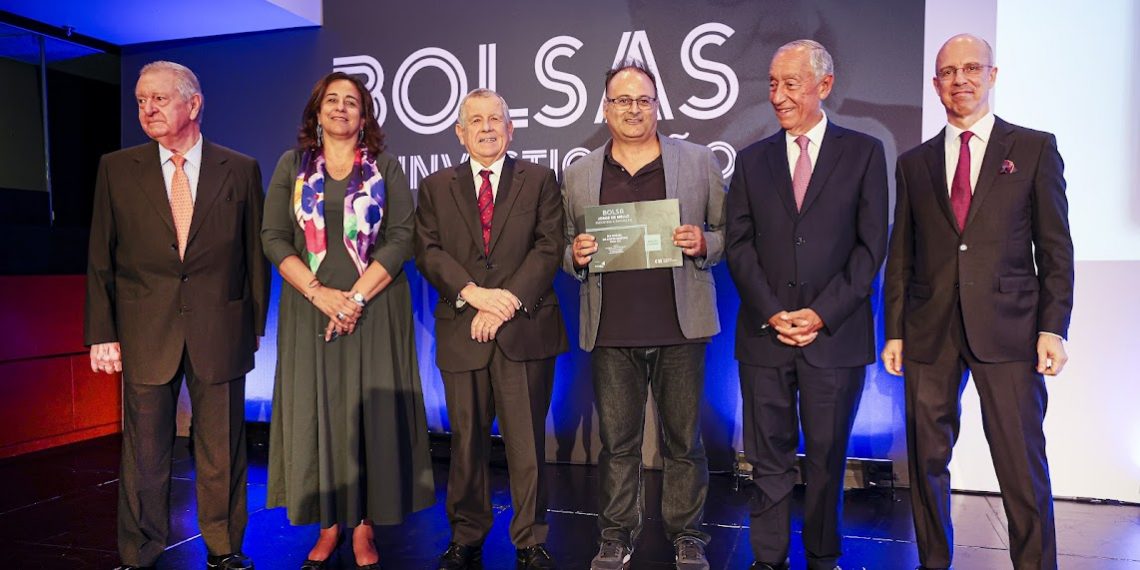It is innovative, promises to make a real difference in veterinary diagnostics, and is currently in fourth stage. Pocket Vet – a solution that has already received scientific excellence recognitions and awards – obtained an honourable mention within the scope of the Jorge de Mello grants for Industry and Innovation, promoted by the Fundação Amélia de Mello Foundation and granted by the President of the Republic, Marcelo Rebelo de Sousa.
INESC TEC researcher Rui Martins is one of the faces behind this innovative work, and emphasised the honour of receiving the award on behalf of a multidisciplinary team. “This acknowledgement proves the scientific and technological excellence of the work developed by the INESC TEC veterinary point-of-care team, led by me – alongside the team at the School of Medicine and Biomedical Sciences of the University of Porto (ICBAS), coordinated by lecturer Ricardo Marcos. We also relied on the support by Felisbina Queiroga, lecturer at the University of Trás-os-Montes and Alto Douro (UTAD); Teresa Barroso, lecturer at CESPU; lecturer Luís Pinho from SVAExpLeite Lda.; and Adelaide Pereira, veterinary surgeon at Segalab – as well as the countless volunteers and PhD students involved in this field of work.”
The numerous awards and distinctions received underscore the significance and excellence of the work undertaken. But what exactly is this innovation that seems to be revolutionising the sector? It is a portable mini-laboratory that uses Artificial Intelligence (AI) and spectroscopy to analyse blood and milk directly at the production site, enabling the timely detection of inflammatory conditions and the animal’s state of health.
In addition to immediate results concerning the speed of diagnosis across various animals while reducing dairy production costs – since it allows for the early detection of diseases that represent one of the sector’s major expenses – Pocket Vet is based on three key aspects that ensure competitive gains. First, the compact hardware has been designed to analyse just a single drop of fluid. Second, the self-learning AI ensures precision even with complex samples. Finally, it features a distributed learning system that allows knowledge exchange between devices. Combined, these features ensure that smaller healthcare units have access to sophisticated diagnostics, traditionally limited to specialised laboratories.
Since 2014, Pocket Vet has been validated in both human and veterinary hospitals, demonstrating high accuracy compared to certified laboratory methods. Rui Martins explained that “the system holds international patents and focuses on a global multi-billion market, including both companion and production animals.” The next step is commercialisation and industrialisation. “Pocket Vet technology has reached a level of maturity that requires transition from the research environment to industrial-scale product development,” stated the researcher; according to him, said transition will enable “a real impact on both human and animal quality of life.” “Having mitigated technological risks through research projects, we now expect to enter the stage of mitigating business risks and securing industrial investment,” he concluded.
The researcher mentioned in this news piece is associated with INESC TEC


 News, current topics, curiosities and so much more about INESC TEC and its community!
News, current topics, curiosities and so much more about INESC TEC and its community!